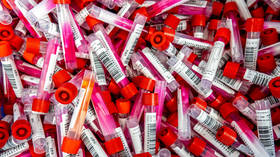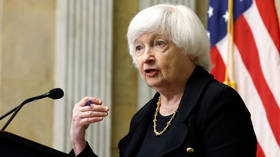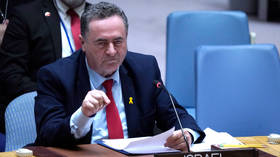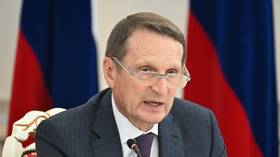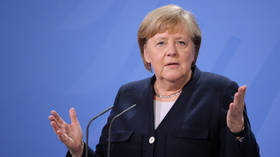‘No evidence’: EU Parliament using Navalny’s alleged poisoning to push for sanctions & halt Nord Stream project – German MEP
The EU Parliament’s call for a probe into the alleged poisoning of Russian opposition figure Alexey Navalny, along with new sanctions against Moscow, is just a manifestation of the establishment’s “anti-Russian sentiment."
That's according to Maximilian Krah, a member of the European Parliament from the Alternative for Germany (AfD) party. The “obscure” case involving the alleged poisoning of Navalny has been used by the EU establishment to launch another round of Moscow-bashing, he says.
The lawmaker explained that his fellow MEPs had not, in fact, seen a single piece of evidence suggesting the Russian government might have had a hand in what happened to Navalny.
We don't have the evidence... none of the members of parliament who today voted in favor of sanctions has seen any evidence.
Krah said it was “unrealistic” to expect that Navalny’s case would not be politicized, arguing that it was “absolutely clear” it was being used to push an anti-Moscow agenda.
On Thursday morning, the EU Parliament passed a resolution calling on member states to “isolate Russia in international forums,” to “halt the Nord Stream 2 project” and to prioritize the approval of another round of sanctions against Moscow.
The MEP also expressed skepticism about the prospects of the broader public ever getting to see any evidence linking the opposition figure’s sudden illness to Russian foul play.
“Evidence will only get published and provided to Russia if there is public pressure,” he said, adding that he does not see any such pressure building anywhere in the EU. Until that changes, Berlin is likely to continue demanding “answers” from Moscow while holding off on requests by Russian for cooperation, Krah believes.
Also on rt.com European Parliament calls for international probe into alleged Navalny poisoning & suspension of Nord Stream 2 gas pipelineThe German MEP also weighed in on the fate of the Nord Stream 2 pipeline, suggesting that the alleged poisoning could work to Washington’s benefit, given that the White House has been seeking to undermine the project, liking Russian gas to Germany, for months. Krah said it was “clear from the beginning” that the US would try to use the situation to scupper the project, which he says would make Germany “more independent from American influence.”
The EU resolution, which is not legally binding but acts as an advisory for the bloc's leaders, was supported by 532 MEPs and opposed by 84, while 72 abstained. Fresh sanctions against Russia have been mulled by both the EU and US since news about Navalny’s alleged poisoning was made public.
Also on rt.com Berlin struggles to answer RT's question on fate of mysterious Navalny aide who left Russia for Germany without being questionedMoscow has repeatedly expressed its readiness to cooperate with Germany in the probe into the incident, while stressing that the Russian medics who first treated Navalny when he fell ill found no traces of any poison in his body. The Kremlin has also repeatedly approached Berlin for data possessed by the German side, but has so far received none.
Think your friends would be interested? Share this story!


